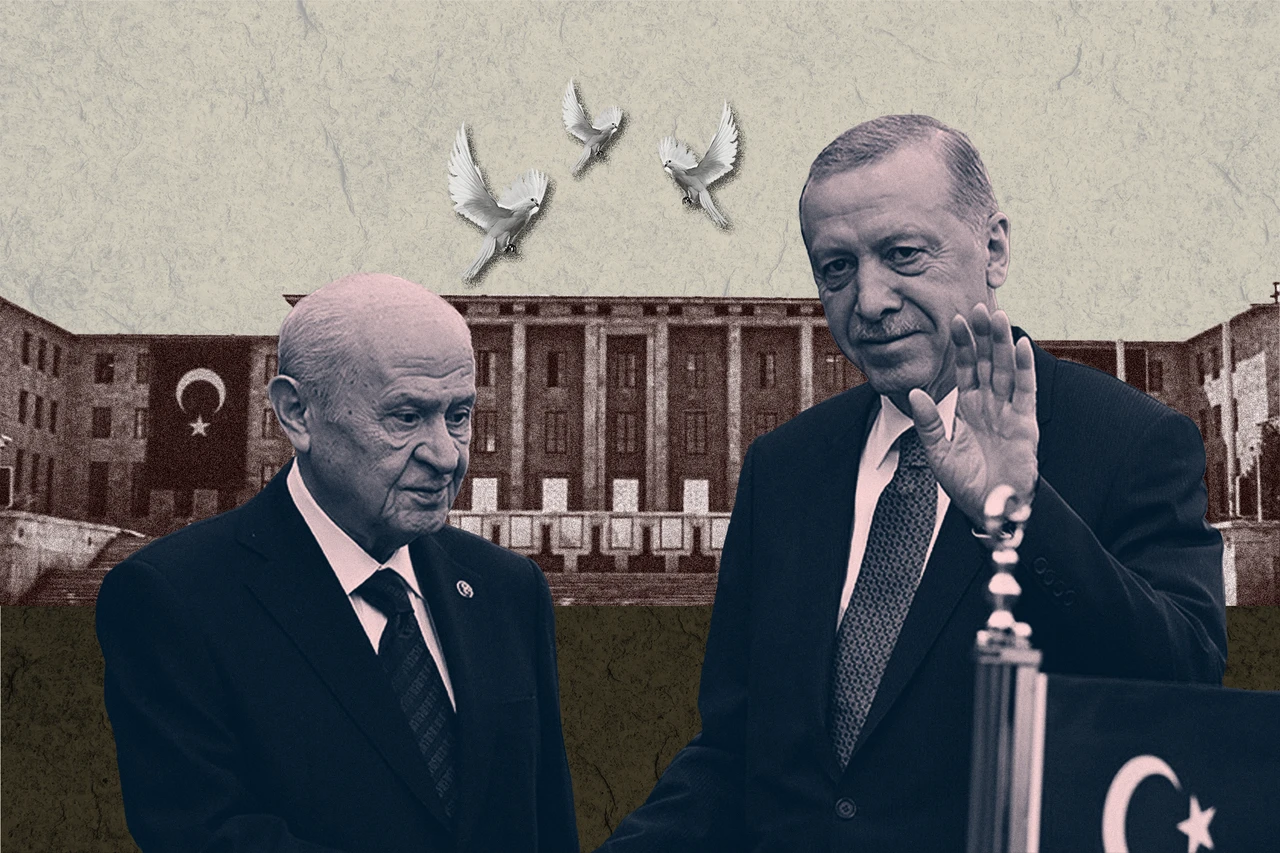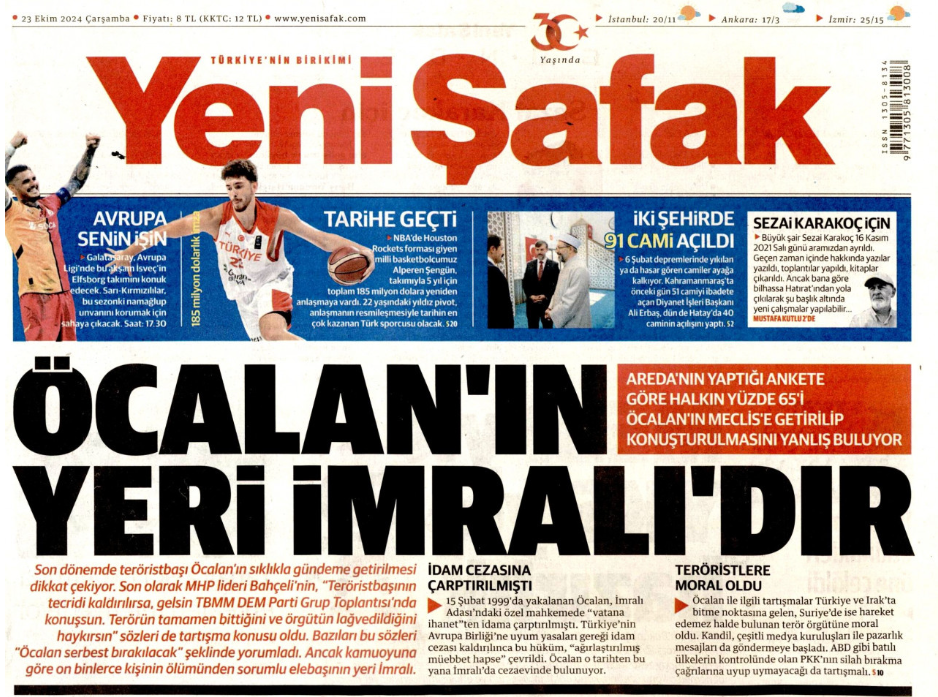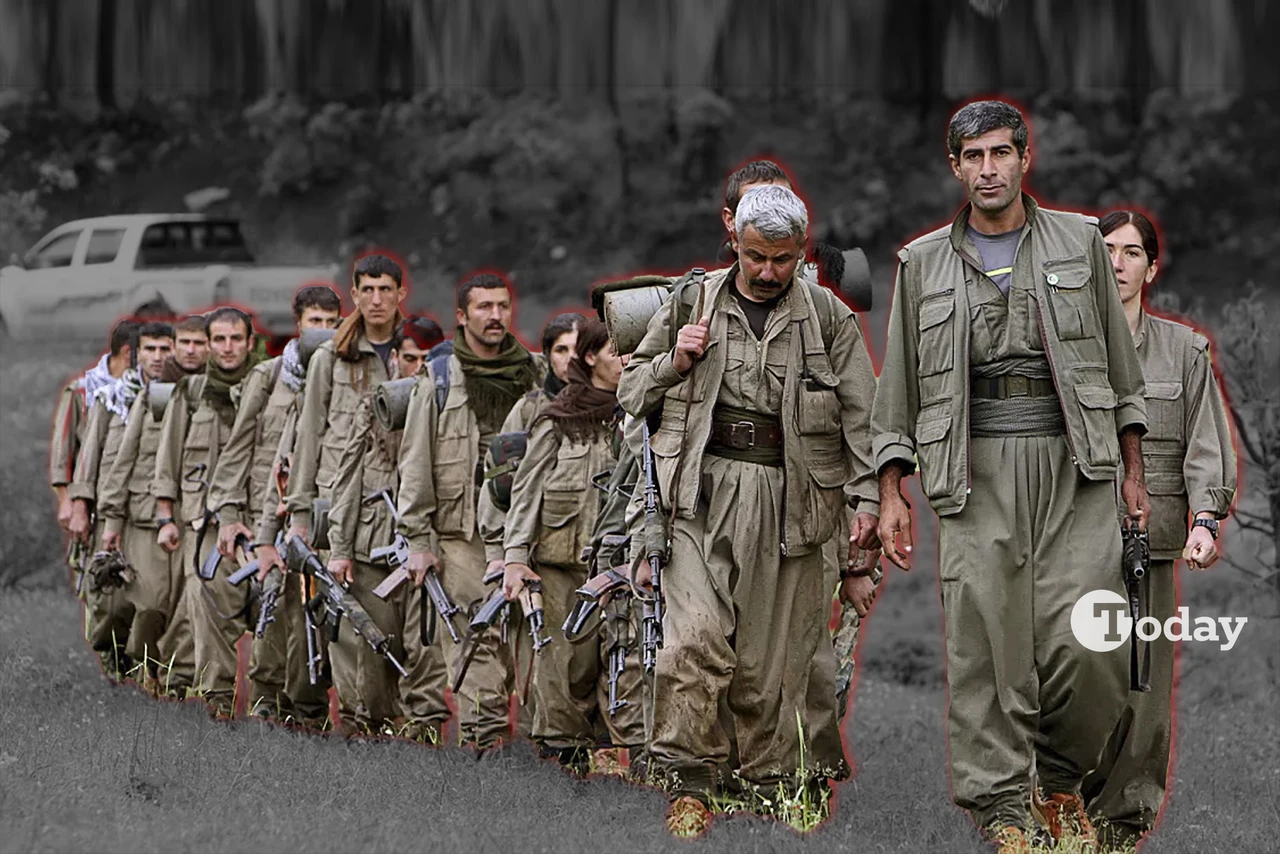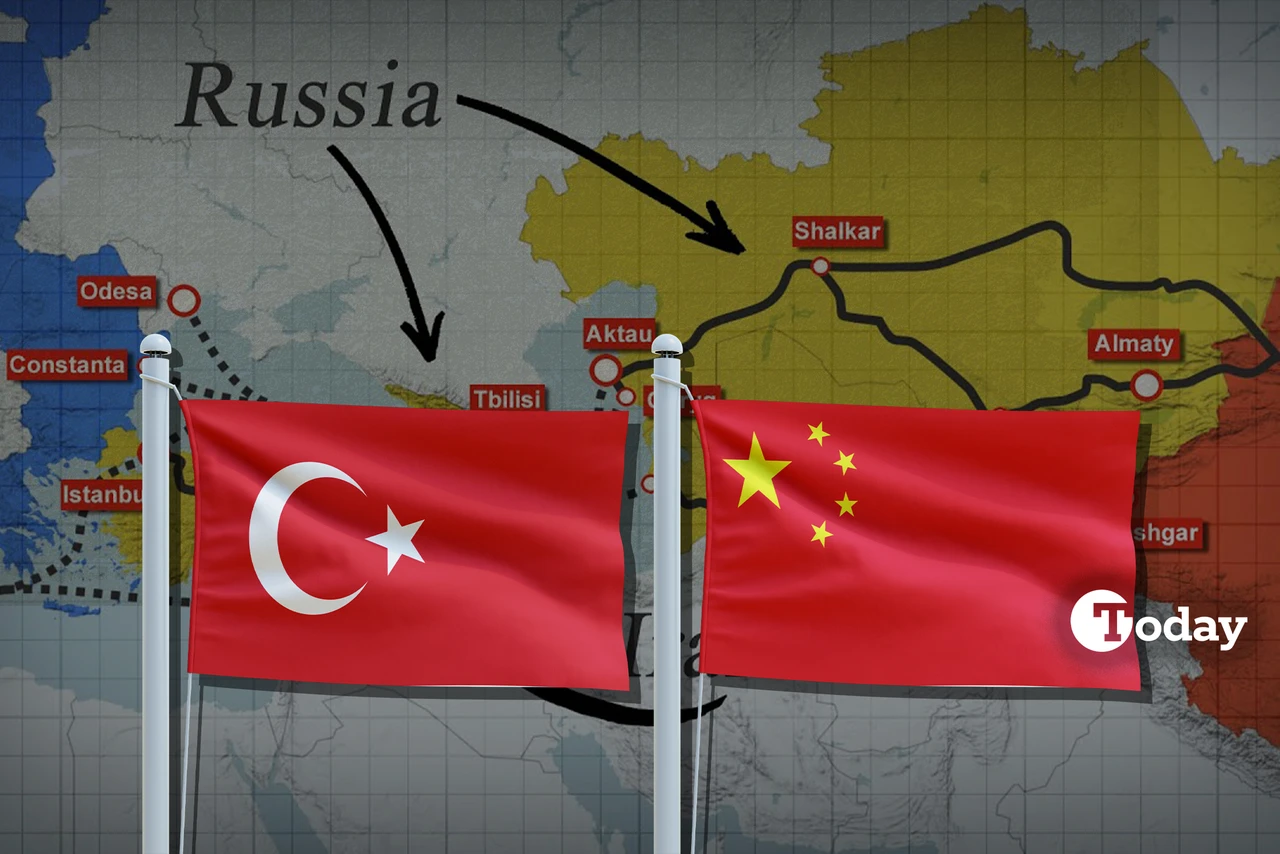Will likely peace process in Türkiye force YPG in Syria to lay down arms?
 As the main component of the Nation's Alliance, nationalist MHP leader Devlet Bahceli and President Erdogan have been close allies in Türkiye's recent political history.
As the main component of the Nation's Alliance, nationalist MHP leader Devlet Bahceli and President Erdogan have been close allies in Türkiye's recent political history.
The Nationalist Movement Party’s (MHP) leader Devlet Bahceli’s call for the terrorist group PKK and its imprisoned founder Abdullah Ocalan to lay down arms and speak at Parliament has quickly become the main agenda item in Turkish politics. Terrorist organization PKK’s leader Abdullah Ocalan has been imprisoned since February 1999.
Bahceli’s statement is seen as the beginning of a peace process in Türkiye, although commentators opine that it is too early to regard it as a concrete initiative.
As the leader of an organization that seeks Kurdish independence within Türkiye’s border, it is the first time in Turkish politics that a parole option for Ocalan has been publicly discussed by nationalist politicians that usually set the mainstream discourse in the Turkish public.
Three hours after Bahceli’s ground-shaking speech on Oct. 22, President Erdogan said, “The People’s Alliance opened a historic window. We hope that this window of opportunity will not be sacrificed for personal ambitions. We want to build a Türkiye where there is no terror.”
Feti Yildiz, MHP’s deputy chairman, defined Oct. 22 as a milestone.
Bahceli’s statement is deemed somewhat “revolutionary” as he is known for his staunchly anti-PKK stance in Turkish politics. The statement drew much criticism and raised many questions.
Between the lines, both Erdogan and Bahceli suggest that regional chaos and instability are reasons to strengthen Türkiye’s domestic front.
Will likely peace process in Türkiye affect PKK’s offshoot YPG in Syria?
However, one of the most discussed questions since October 22 is whether Ocalan’s active role in a potential peace process in Türkiye would lead the terror group YPG to lay down its arms and cease military activities.
Pro-government leaning Hurriyet’s Ankara bureau chief Hande Firat argues that Bahceli’s condition for a possible peace process is that all terrorist organizations including PKK and its offshoot YPG lay down arms to Turkiye and that members of these organizations face justice in the country. Firat said Bahceli has been working on this issue since May.
Despite visible support for Bahceli’s call in Türkiye’s mainstream media, not every pro-government outlet was pleased with Bahceli’s call.
Yeni Safak’s headline read, “Ocalan’s Place is in Imrali” referring to the location where he has been imprisoned.
Yeni Safak shared survey results from the Areda Survey company, indicating that 65% of the Turkish population was against the possibility of an Ocalan speech in the Turkish Parliament. Areda Survey is part of Yeni Safak’s media group.

Since 1984, the PKK has claimed more than 40,000 lives in Türkiye. The group is regarded as the largest obstacle to economic development in eastern Türkiye and is responsible for Türkiye’s high defense spending over the past four decades.
PKK’s large influence in Kurdish-oriented political groups is seen one of the biggest challanges in Turkish politics.
However, in the last decade, many PKK fighters were pushed out of Türkiye due to Türkiye’s increasing counterterrorism capacities and found a safe haven in northeast Syria where its off-shoot aimed at establishing an autonomous structure.
Would YPG give up its statehood ambitions?
Türkiye’s position against the PKK appears stronger compared to the previous peace process initiated in 2013, primarily due to the PKK’s declining military power within Türkiye’s borders.
However, the YPG’s existence creates a new struggle for the peace process. The most ambiguous question is whether YPG will join PKK in laying down arms and facing justice in Türkiye’ if Ocalan takes an active role in the peace process.
YPG had announced local elections in the summer. It was forced to postpone the elections indefinitely following pressure from Türkiye. The terrorist group’s efforts have also faced opposition from within Syria, notably from Kurdish political groups suppressed by force. In addition, the U.S. State Department released statements opposing the elections.
Türkiye’s likely peace period depends on multiple dynamics including YPG’s role and existence in the region.
General opinion in Türkiye’s political scene is that as long as YPG stays as a unified military force in northern Syria, any peace process in Türkiye would not be “promising.”
The YPG generates income by selling oil to Damascus through smugglers, from seized oil wells in the region, despite U.S. sanctions.
While the YPG/PKK uses the income for its purposes, residents in the region are deprived of services and much-needed aid.



